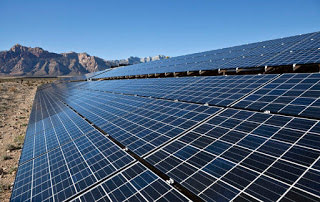Following the International Trade Commission’s (ITC) September 22 decision that foreign manufacturing of solar cells and panels have contributed to “serious injury” among US cell and panel manufacturers, the focus of the solar industry has now turned to the potential remedies that the ITC will recommend to the President in its November 13 report. Under Section 201 of the Trade Act of 1974 (codified in 19 U.S.C. § 2253), the ITC will recommend an imposition of tariffs, quotas or other trade remedies. Last week, the ITC Commissioners began hearing petitions over potential remedies. Suniva and SolarWorld, the two companies behind the Section 201 petition to the ITC, have proposed a $0.32c/W tariff be included in the price of solar panels from abroad. While SolarWorld is also seeking relief through quotas, some attention should be paid to the tariff remedy of $0.32c/W that Suniva and SolarWorld are seeking.
Under the Trade Act of 1974, the ITC may recommend and the President may impose “an increase in, or the imposition of, any duty on the imported article” where the ITC has found “serious injury.” 19 U.S.C. § 2253(a)(3). This remedy, however, is subject to limitations under Section 2253(e), particularly that “[n]o action may be taken under this section which would increase a rate of duty to (or impose a rate) which is more than 50 percent ad valorem above the rate (if any) existing at the time the action is taken.”
While Suniva’s remedy brief has not been made publicly available, it argues in its Summary of Remedy Recommendationsthat the total per-watt tariff should come to $0.74c/W. By way of example, in year one, if a module is imported with a base price of $0.42 per watt, a 201 tariff of $0.32 per watt will be added to that price. The resulting per-watt value of the module thus becomes $0.74 - which meets the [target] minimum floor price. Suniva makes no mention of the 50 percent ad valorem limit under Section 2253(e)(3).
In SolarWorld’s publicly available brief, it does reference Section 2253(e)(3) and justifies the $0.32c/W tariff as follows:
Under the [Trade Act statute], the President has the authority to proclaim an increase in, or the imposition of, any duty on the imported article, but limits the rate of duty increased or imposed to no more than 50 percent ad valorem above the rate (if any) existing at the time the action is taken. 19 U.S.C. §§ 2253(a)(3)(A), 2253(e)(3). The statute further provides that the term 'ad valorem' includes ad valorem equivalent. .. The term 'ad valorem' equivalent means the ad valorem equivalent of a specific rate .... 19 U.S.C. §§ 2481(3), 2481(4). See also Remedy Recommendations in Section 201 Cases, USITC GC-H-190, at 10 (July 3, 1984) (explaining that the tariff in a section 201 case could be in the form of an ad valorem rate (e.g., 10 percent ad valorem), a specific rate (e.g., 5 cents per pound), or a compound rate (e.g., 5 cents per pound plus 10 percent ad valorem). While SolarWorld acknowledges that this Commission report predates the Uruguay Round Agreements Act which results in certain changes to the relevant provisions of the Trade Act of 1974, this finding remains applicable and relevant nonetheless.
I.e., SolarWorld argues that because “ad valorem” can be the ad valorem equivalent of a specific rate (e.g., $0.32c/W rather than a percentage), it meets the 50% limit. Such an interpretation fails to recognize that even if “ad valorem” constitutes a specific rate, it is still subject to the 50% limit as is calculated against the price of the goods themselves.
Both arguments fail to demonstrate how a $0.32c/W rate is justified under Section 2253(e)(3). The base price of $0.42c/W that Suniva uses in its Summary would correspond to a tariff of at most $0.21c/W, with an overall price of $0.63c/W. Such a limit is $0.11c/W below what Suniva and SolarWorld are seeking.
If the ITC recommends and the President adopts a tariff value that is impermissible under the Trade Act, as Suniva and SolarWorld are petitioning, the relief that the troubled companies are seeking could be subject to significant litigation delays. In the meantime, solar developers, lenders and tax equity investors wait and watch.



